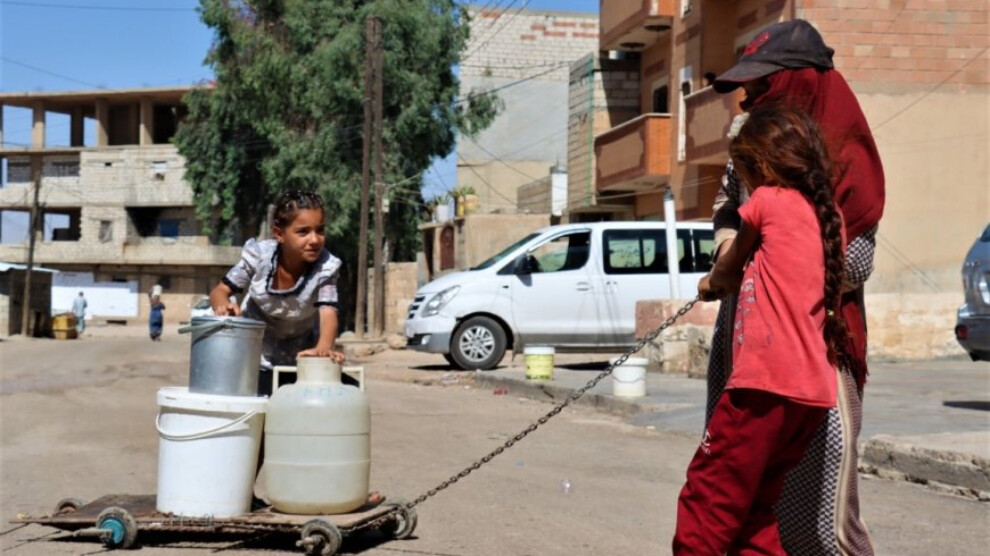The Turkish state continues to cut off the water supply to Alouk Station in Hesekê. The Autonomous Administration, on the other hand, is making great efforts to provide water for the people.

The occupation of the Turkish state and its mercenaries in the city of Serêkaniyê has been continuing since October 2019. So are the attacks on the region. The Turkish state and its mercenaries cut off the Alouk Station, which provides water to more than one and a half million people in Hesekê and its district.
The Turkish state has cut off the water supply more than 40 times since the occupation of Serêkaniyê. According to the Hesekê Water Directorate, the last water cut was 7 months ago and the water cuts still continue.
Initiatives of the Autonomous Administration
Hesekê Water Directorate declared Hesekê a disaster area on 3 July 2023. The Autonomous Administration is carrying out major projects to create an alternative to Alouk Station and meet the needs of the people. At the same time, 60 water tankers that distribute water to the residents of the neighbourhood were put into service for the citizens. Work is also being carried out to provide water to citizens from tankers and wells.
Around 800 water tankers distribute water to the people living in the city every day.
In March 2020, the Cizîrê Canton Democratic Autonomous Administration launched the first water project in the Hime region, west of Hesekê. Within the scope of this project, 15 wells were dug and water was provided to citizens in the city for 3 months. However, the wells dried up due to low water levels.
In August 2021, the Autonomous Administration launched a project that involved drawing water from the Euphrates River to Hesekê, 160 km away. However, the project was stopped due to the Turkish state reducing the Euphrates water.
The Democratic Autonomy Administration launched a new project consisting of 4 stages in August 2023: 20 wells will be opened in the rural parts of Amudê district and water will be pumped to Hesekê through 62 km long pipes.
The project, which started this year, costs approximately 18 million dollars.
According to Hesekê Water Directorate, the city needs an additional 130 thousand cubic meters of water daily.








Leave A Comment